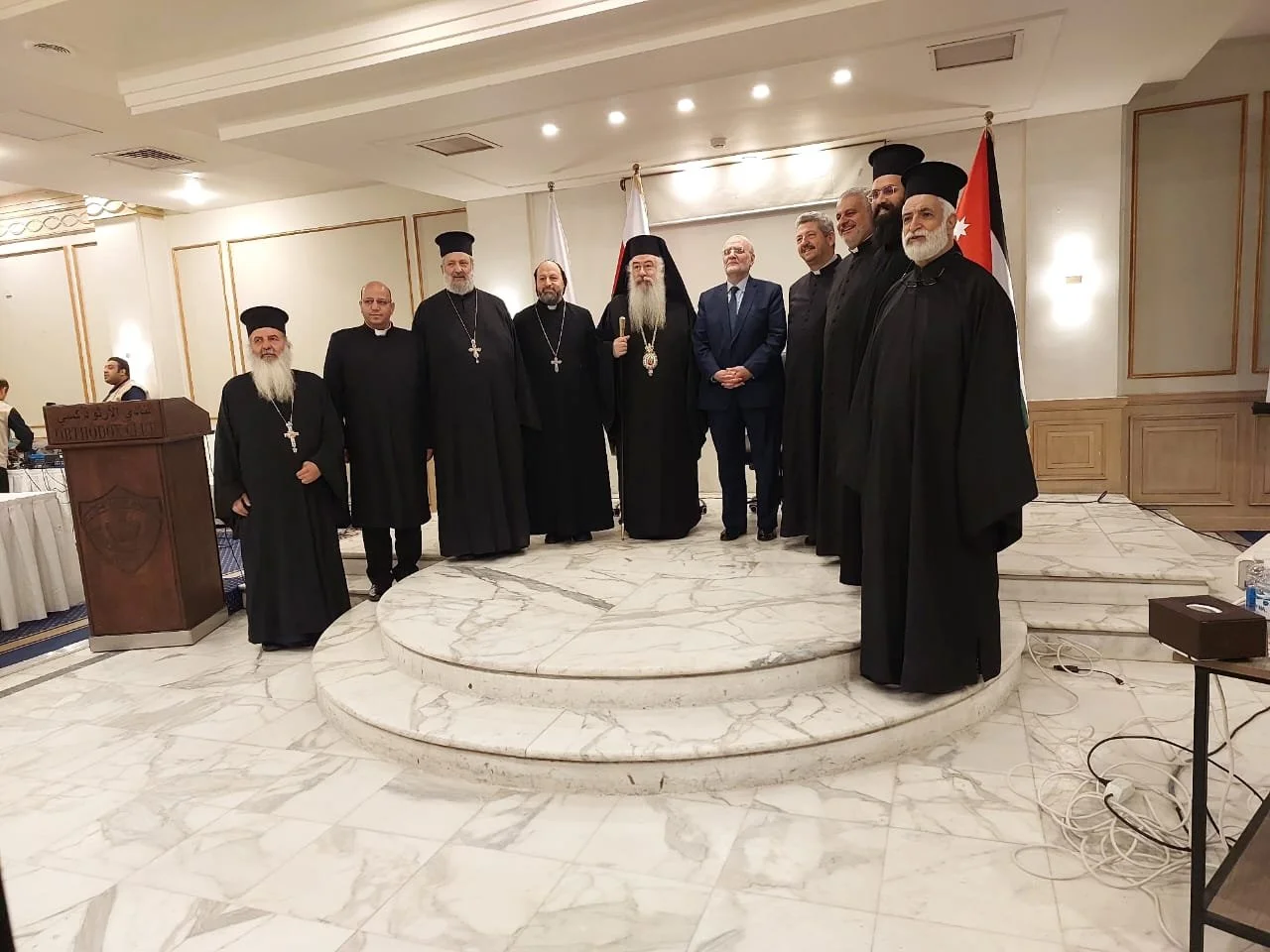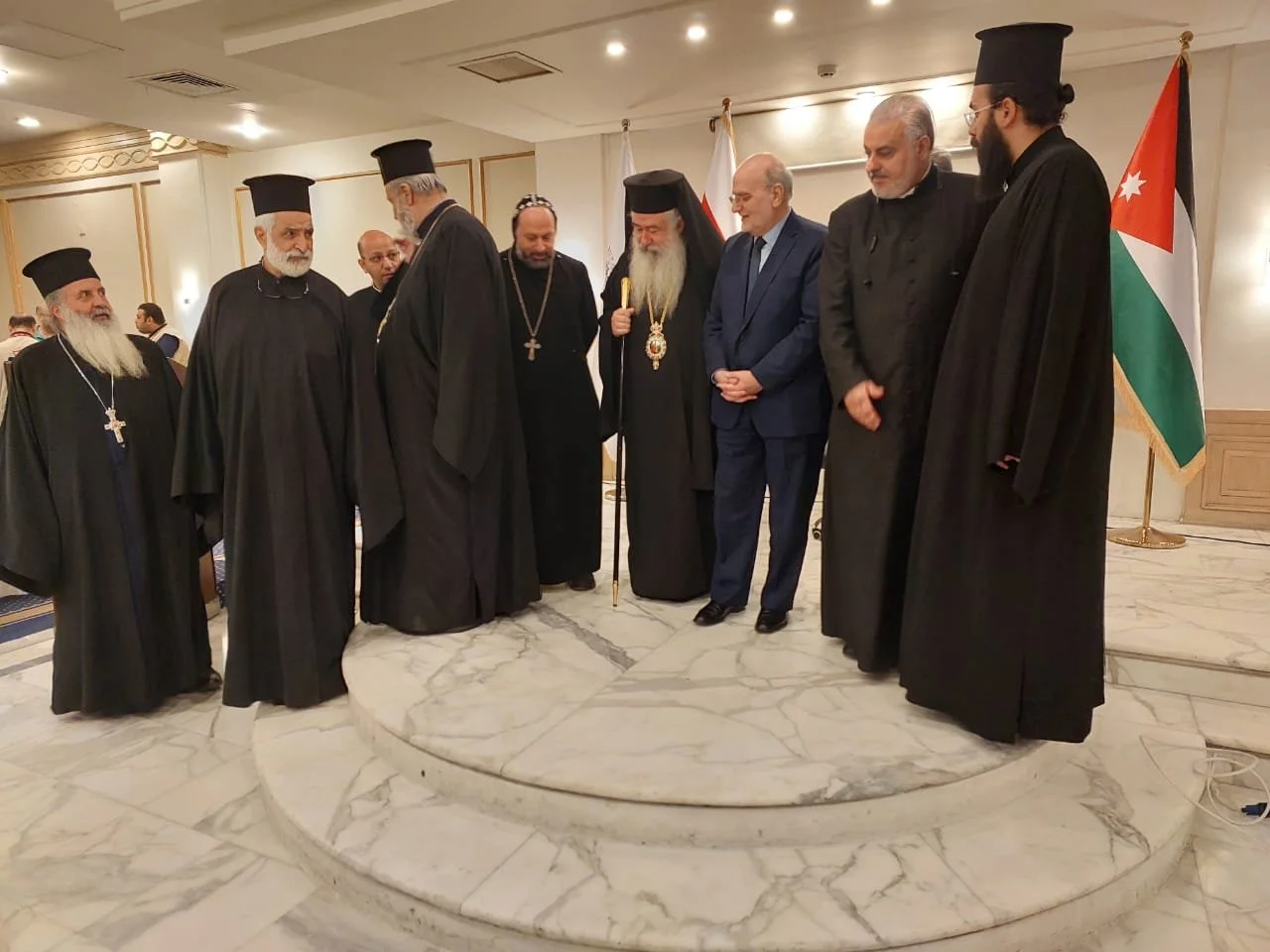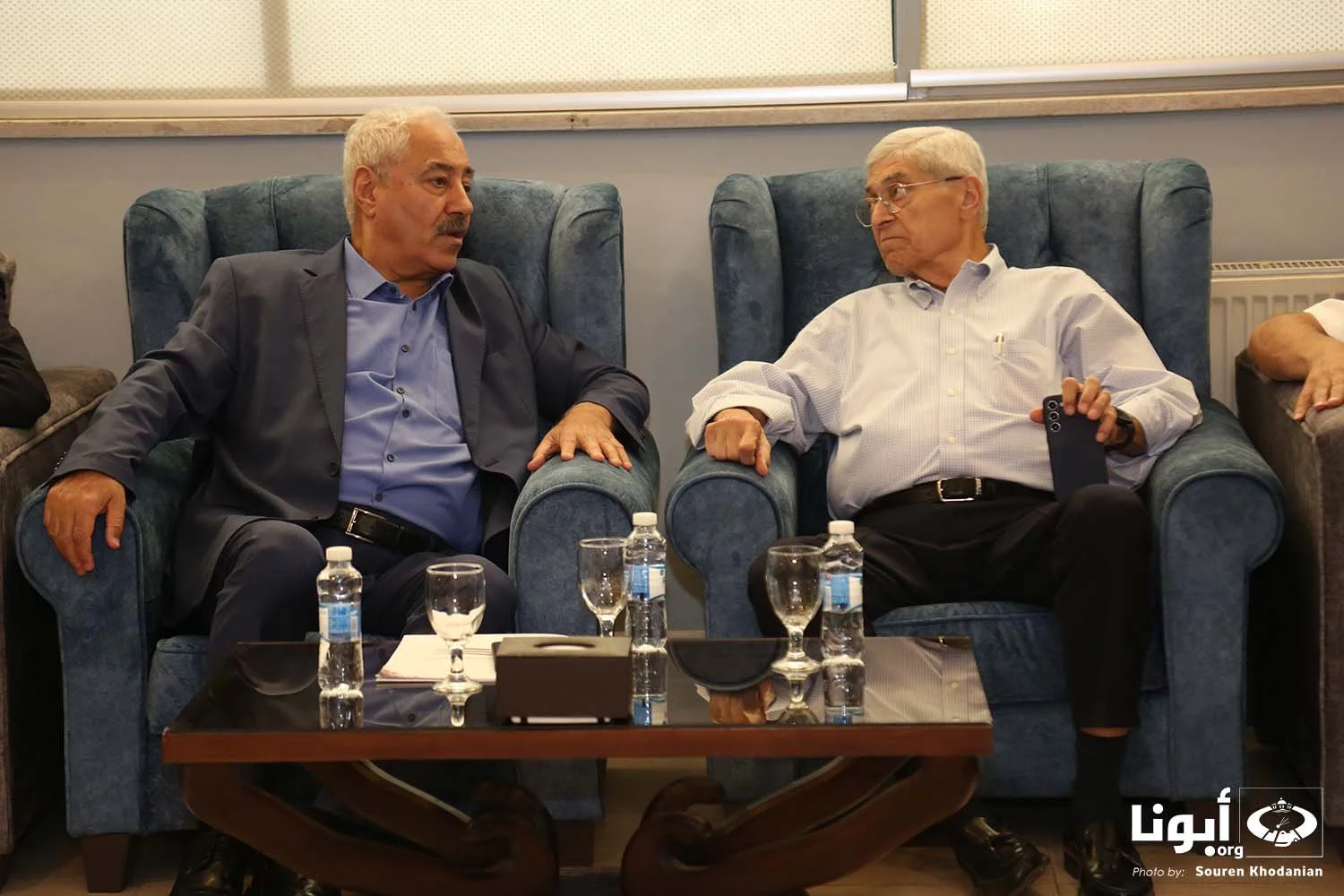MECC in Its Fiftieth Year, Its reality, Future Vision, and the Challenges of the Next Phase
The Secretary General Dr. Michel Abs Delivers a Lecture at the Orthodox Club - Amman:
“Ecumenism is intertwined with the broader issues that Christianity faces in the world, which are the topic of dialogue, controversy, and even conflict and disagreement”
Within the framework of his tour in the Hashemite Kingdom of Jordan to inaugurate a new office for the Middle East Council of Churches (MECC), and with the blessing and presence of His Excellency Archbishop Christoforos Atallah, the Greek Orthodox Archbishop of Jordan, the MECC Secretary General Dr. Michel Abs visited the Orthodox Club in Amman, on Monday 3 June 2024, where he delivered a lecture entitled “MECC in Its Fiftieth Year, Its reality, Future Vision, and the Challenges of the Next Phase.”
Dr. Abs was accompanied by the Director of the MECC new office in Jordan Father Ignatius Khalifeh, and the MECC Financial Director Mrs. Laudy Al Khoury. The lecture was also attended by the Heads of Churches in Jordan or their delegates, members of the Executive Committee of the Middle East Council of Churches (MECC), Father Rifaat Bader, the Head of the Catholic Center for Studies and Media and Publisher of Abouna Website, and Dr. Aude Kawas, as well as a large audience of intellectuals and Orthodox elites in Jordan.
The meeting began with a speech delivered by His Excellency Archbishop Christoforos Atallah, in which he welcomed Dr. Michel Abs for his presence and sharing his lecture, praising the efforts of the Middle East Council of Churches and its work at various levels in the Middle East and Jordan. He also recalled the MECC work since the Late Patriarch Theodoros I supported its establishment in Jordan when he was an Archbishop there, and his interest in supporting the MECC humanitarian services that it was and is still providing.
His Eminence also extended his thanks with love to all the workers in the MECC office who provided their services during the past years in Jordan, stressing that the journey continues with the blessing of His Beatitude Patriarch Kyrios Kyrios Theophilos III, the Greek Orthodox Patriarch of the Holy City of Jerusalem and all Palestine and Jordan, and announcing the opening of the Middle East Council of Churches office in Jordan, managed by Father Ignatius Khalifeh.
Then the lecture of the Secretary General Dr. Michel Abs started, in which he talked about the Middle East Council of Churches (MECC) in its fiftieth year, from its founding and path, to its outlook and challenges. He also shed light on the MECC spiritual and legal authority and the Church Families that it includes, in addition to its organizational structure, the activities of its departments, and the strategic framework for its work.
In addition, Dr. Abs mentioned the challenges of the Middle East Council of Churches and ecumenical work, as well as the major societal and humanitarian challenges in modern society. In this context, he stressed that ecumenism is intertwined with the broader issues that Christianity faces in the world, which are the topic of dialogue, controversy, and even conflict and disagreement, and it stands at a crossroads, confusing in the face of emerging issues which humanity disagrees. In order to survive and continue, it must be able to overcome the special challenges posed by the contemporary context, the context of fragmented modernity.
Hence, Dr. Abs stated that the understanding of ecumenism and ecumenical work varies from one person to another or between one institution and another. This results an unbalanced dialogue on the matter due to differences in concepts, as well as differences in vision and subsequently in strategies between institutions or individuals. Therefore, it is necessary to revisit the concept, its developments, and explain it to all employees. It is necessary to highlight it the media and hold seminars periodically in order to ensure the unity of the concept and, consequently, the unity of direction.
The Secretary General Dr. Michel Abs also valued the Hashemite Kingdom of Jordan, which has witnessed, and continues to witness, tangible development at all levels, scientific, technical, intellectual, and cultural. He said, “In this country, Christians, as well as the all its people, live a calm and stable life, despite it being located at a political-security crossroad that is the most dangerous in the world.”
At the end of the lecture, an intense and interesting discussion about its various points, was made by the audience, who was greatly interested in Christianity in the Middle East and Jordan in particular, and in the conditions of Jordanian society.
Photos: Abouna Website
Photos: Facebook Page of the Greek orthodox Archdiocese in Jordan































































































































